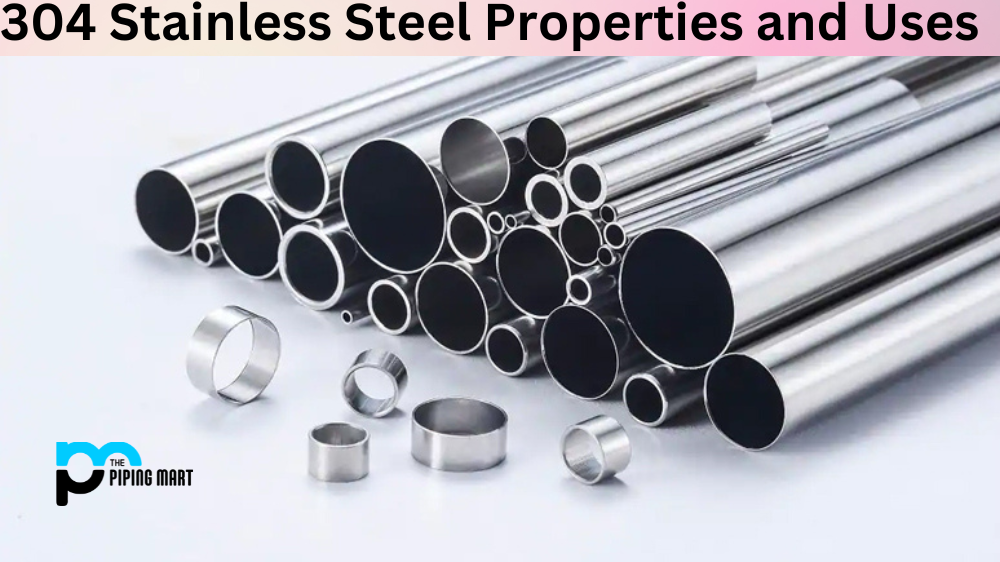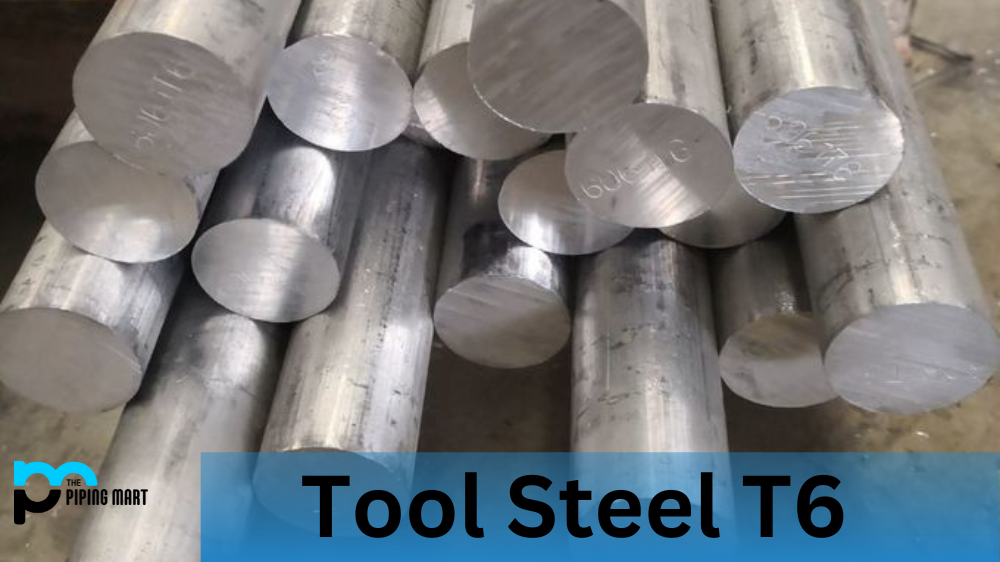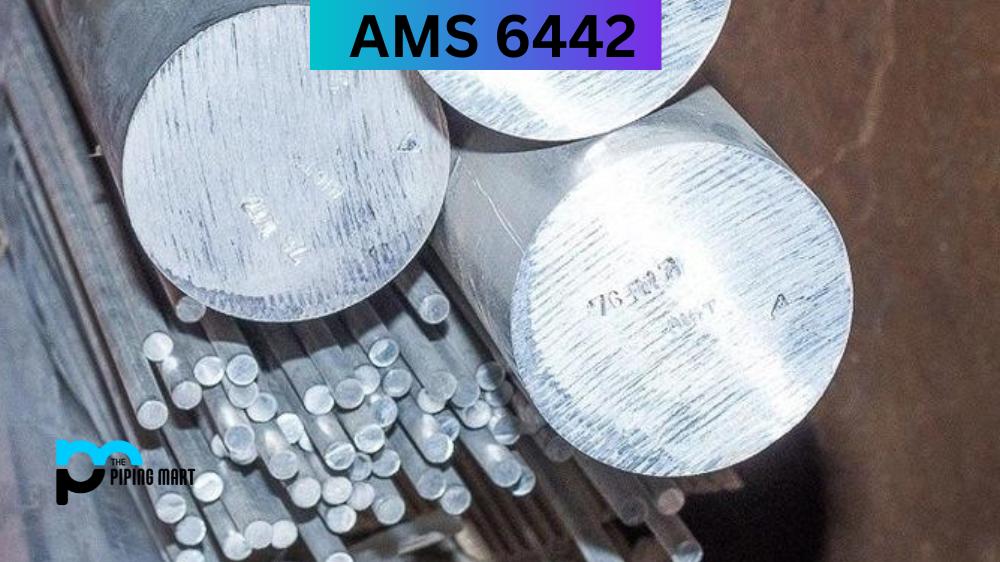When it comes to building materials, few are as diverse as 304 stainless steel. With a host of unique properties and uses, this material is an essential component in many industries. From automotive to medical, let’s take a closer look at what makes 304 stainless steel so special.
What Is 304 Stainless Steel?
304 stainless steel is an alloy of iron, carbon, chromium, nickel, and other elements. It has a density of 8 grams per cubic centimeter and a melting point of 2,550 degrees Celsius. Its corrosion resistance at high temperatures and low temperatures makes it one of the most commonly used alloys for construction purposes. In fact, it’s considered so versatile that you’ll find it in everything from kitchen sinks to space shuttles!
What Forms is 304 Stainless Steel Available at Piping Mart?
- Nuts
- Bars
- Bolts
- Pipes
- Screw
- Tubing
- Valves
- Washers
- Flanges
- Fasteners
- Electrodes
- Stud Bolts
- Sheet Plates
- Pipe Fittings
304 Stainless Steel Composition
304 SS is an austenitic grade steel alloy that contains at least 10.5 percent chromium. It is ideal for applications requiring superior corrosion resistance and can be used to form Inconel sheets as well as components for consumer operating systems, industrial equipment, and more. Not only does UNS S30400 make up a large portion of the alloy used for Inconel sheets, but it also has very low carbon content ensuring superior corrosion resistance that withstands many acids and other corrosive materials. 304 stainless steel is an ideal choice for anyone looking to use Inconel sheets due to its durability, consistent strength, and robust composition designed to last in harsh environments.
304 Stainless Steel Physical Properties
SS 304 is an incredibly durable material with many desirable physical properties. It offers resistance to various corrosive elements and has a high melting point, making it ideal for applications in extreme temperatures. This is complemented by its formability qualities, which allow Inconel sheeting to be easily molded and shaped into desired forms. Furthermore, the 304 stainless steel provides excellent electrical conductivity while still holding up well under mechanical stress and fatigue. All these features make UNS S30400 an excellent choice for any industry that requires strong and reliable components.
304 Stainless Steel Mechanical Properties
UNS S30400 is an alloy used in Inconel sheets and is well-regarded for its impressive mechanical properties. This steel offers high strength, corrosion resistance, and formability, as it was designed to withstand challenging conditions. 304 is the most common grade for stainless steel products, due to its wide range of applications. Characteristics such as tensile strength, yield strength, density and melting point make it a very useful material for multiple purposes in countless industries. By understanding the mechanical properties of this trusted alloy, manufacturers can confidently use Inconel sheets made with 304 stainless steel to craft durable components with quality and value.
304 Stainless Steel Properties
S30400 is a type of alloy comprised of 18% chromium and 8% nickel, making it an incredibly durable material. Other properties of 304 stainless steel include high-temperature resistance, corrosion resistance to many types of solutions, ease of fabrication, and good formability. It is also very ductile and can be hardened quickly by cold-working methods. An additional advantage that makes this type of steel so popular is its relatively low cost compared to other grades. Its wide range of uses makes it one of the most important alloys in modern industry, from architectural structures to kitchen appliances and from cookware to transportation equipment. Its unique properties truly make 304 stainless steel an irreplaceable material!
- 304 stainless steel is a type of austenitic stainless steel.
- It is made up of at least 18% chromium and 8% nickel.
- 304 stainless steel is one of the most commonly used stainless steel and is also known as 18/8 stainless steel.
- 304 stainless steel has good corrosion resistance, heat resistance, and mechanical properties.
- It can be easily formed and welded and is often used in food processing, chemical processing, and architectural applications.
304 Stainless Steel Specifications
| Product Forms | ASTM | ASME |
|---|---|---|
| 304 Stainless Steel Plate, Sheet And Strip | A 240 | SA-240 |
| 304 Stainless Steel Seamless And/or Welded Tubing | A 249/A 249M TP304. A 554 MT304 | SA-249/SA-249M |
| 304 Stainless Steel Seamless And/or Welded Pipe | A 312/A 312M, A 409/A 409M | SA-312/SA-312M, SA-409/SA-409M |
| 304 Stainless Steel Bar, Wire | A 276, A478, A479/A 479M, | SA-479/SA-479M |
| 304 Stainless Steel Billet, Forgings | A 314, A473 | |
| 304 Stainless Steel Flanges, Fittings | A 182/A 182M, A 403/A 403M | SA-182/SA-182M, SA-403/SA-403M |
304 Stainless Steel Uses
Due to its superior resistance to corrosion, heat damage, and pressure damage—as well as its low cost—304 stainless steel is used in countless industries worldwide. This includes architecture and construction (structures like bridges), manufacturing (like tanks), automotive parts (like exhaust systems), medical equipment (like surgical instruments), household products (like cutlery), cookware (like saucepans), and more. It’s also been used in projects such as the International Space Station.
- 304 stainless steel is a versatile material that can be used in a wide variety of applications.
- 304 stainless steel is often used in the food and beverage industry due to its high levels of corrosion resistance.
- 304 stainless steel is also commonly used in the pharmaceutical industry due to its ability to resist corrosion from harsh chemicals.
- 304 stainless steel can also be used in the construction industry for a variety of applications, such as handrails, cladding, and structural components.
- Finally, 304 stainless steel is also frequently used in the automotive industry due to its strength and durability.
Benefits of Using 304 Stainless Steel
One of the biggest benefits that make 304 stainless steel stand out from other metals is its high level of corrosion resistance when exposed to extreme temperature changes or chemicals. This means that you don’t need to worry about rusting or corroding over time due to external factors like humidity or pollution levels in the air. Additionally, it can withstand very high temperatures without losing strength or becoming brittle, like some other alloys do when exposed to heat for long periods of time. This makes it ideal for use in projects where long-term stability is needed—such as aerospace applications or even food production where steam sterilization is required.
Finally, because it’s less expensive than other alloys with similar properties—such as titanium—it’s often preferred by businesses who want a reliable but affordable option for their projects.
Conclusion:
All things considered, there are plenty of reasons why 304 stainless steel stands out among other metals when it comes to properties and uses. From its superior corrosion resistance at both hot and cold temperatures to its moderate cost compared with other alloys—not to mention its wide range of applications across countless industries—it’s no wonder why this alloy has become so popular over the years! Whether you’re looking for an affordable solution for your project or just want something that will last through whatever life throws at it – this metal may be just what you’re looking for!
Meet Heer, a dynamic and driven writer learning tricks of her trade in the metal industry. With a background in Digital Marketing, Heer brings a unique perspective to her writing, sharing valuable insights. Apart from blogging she like reading and hiking.




